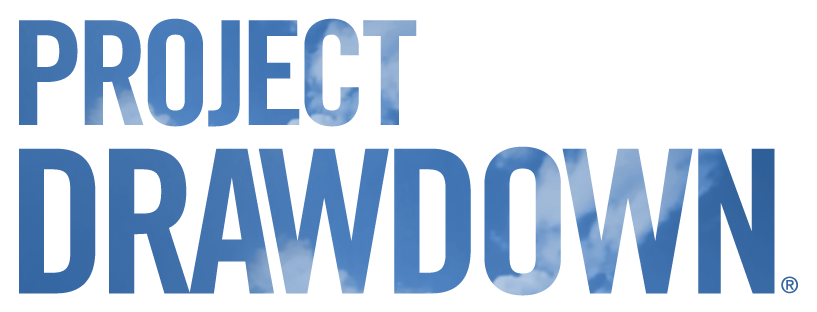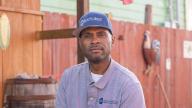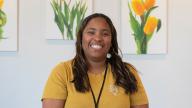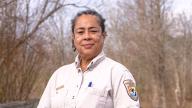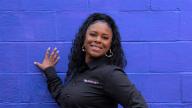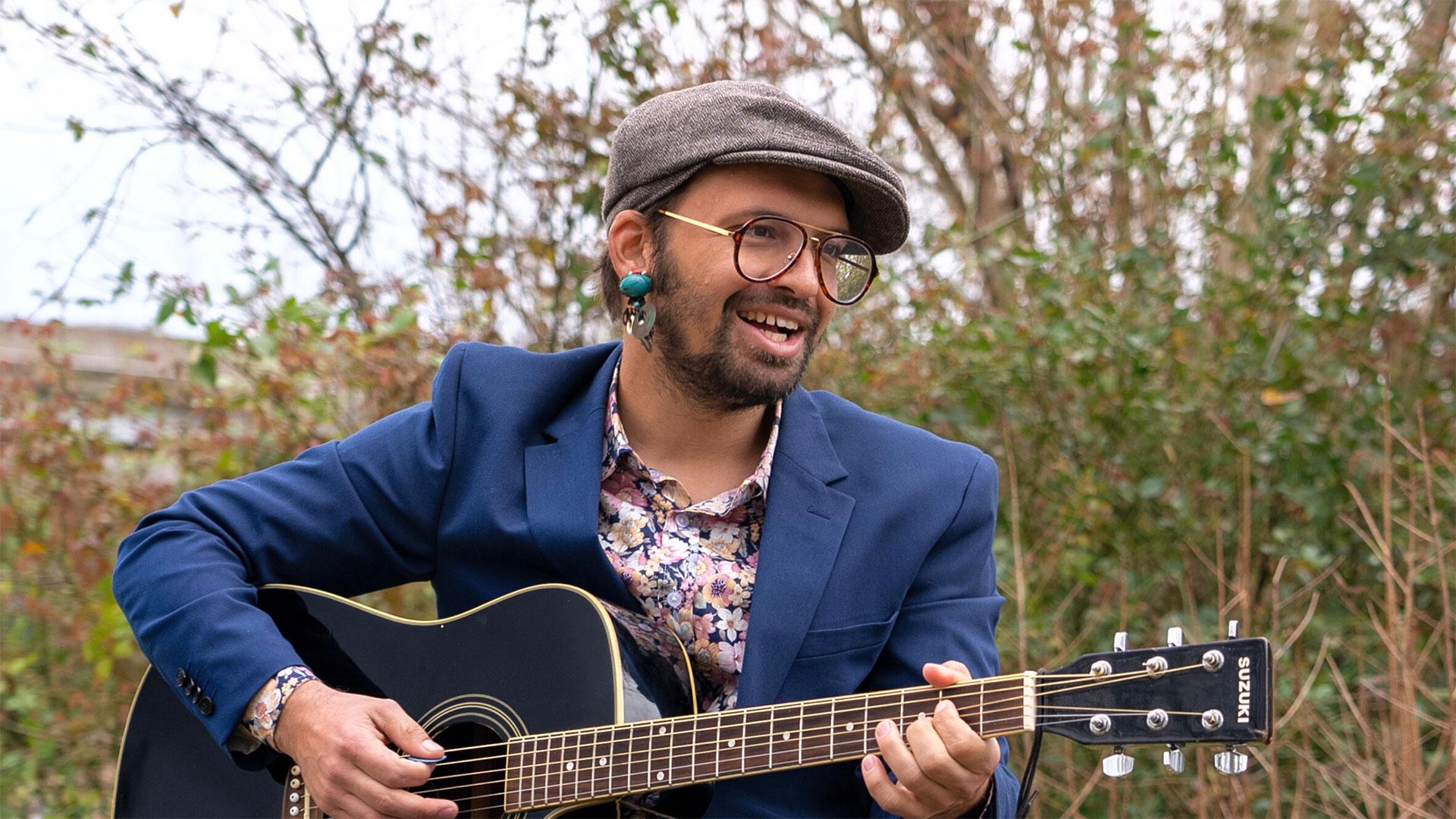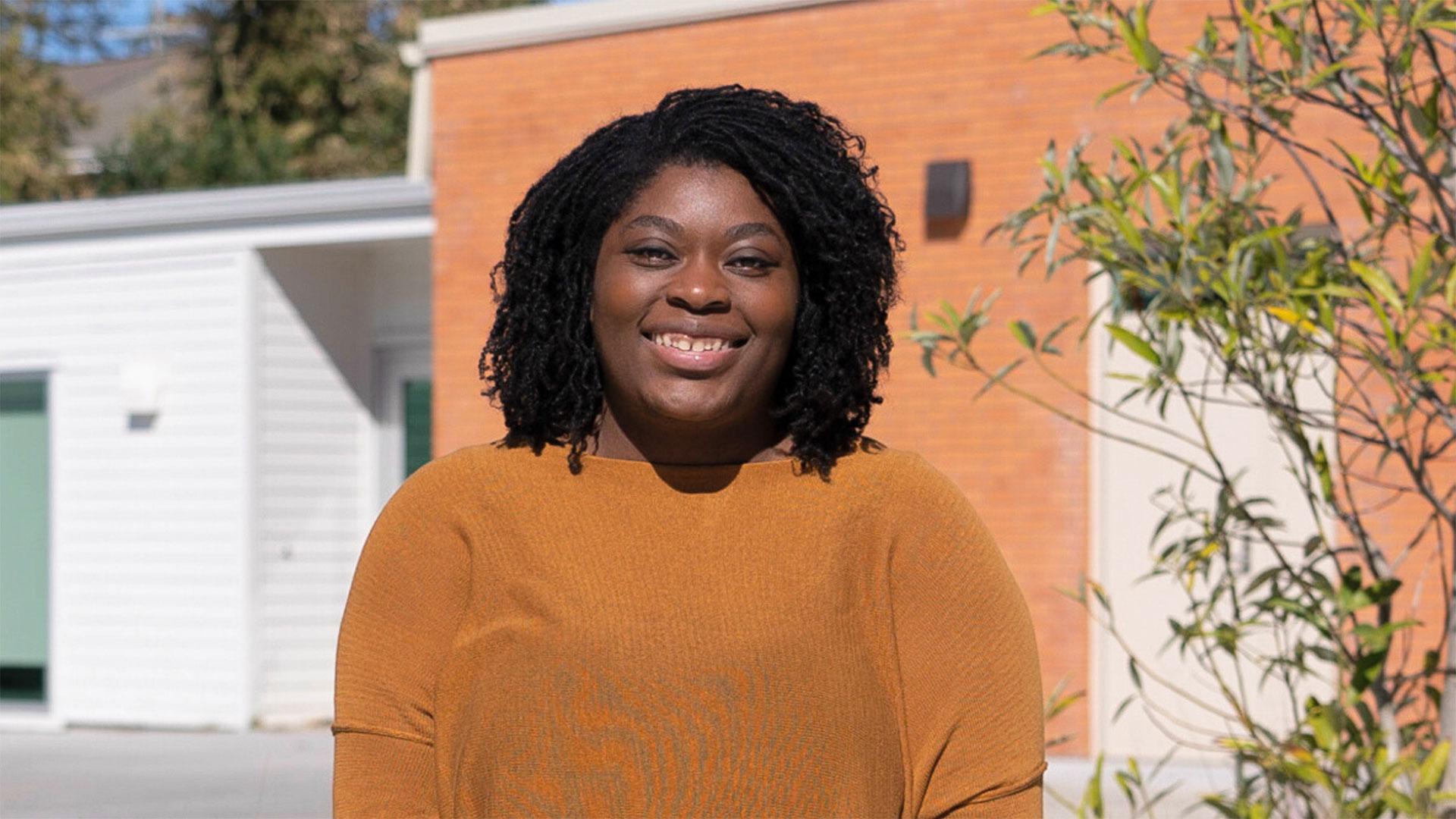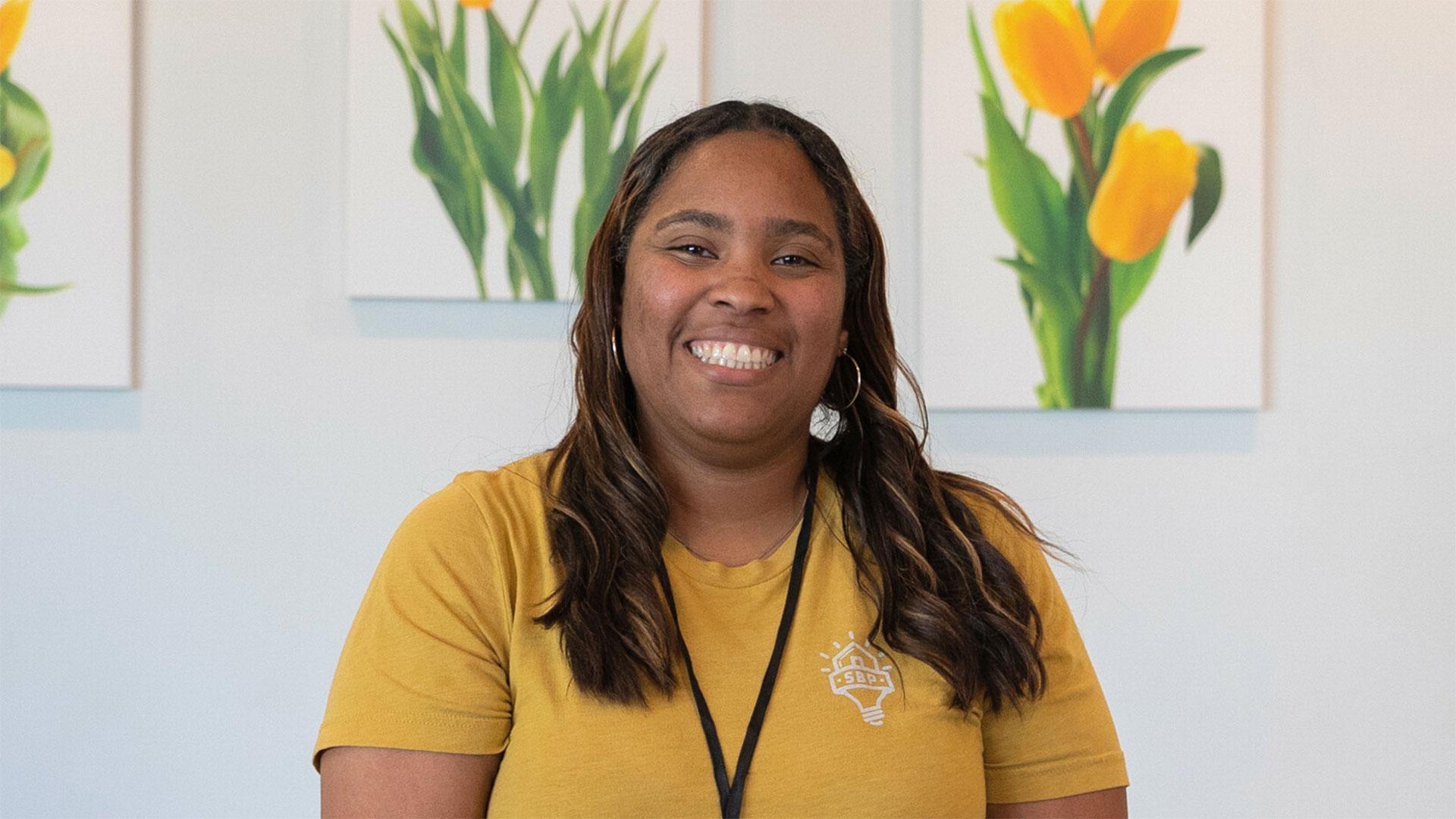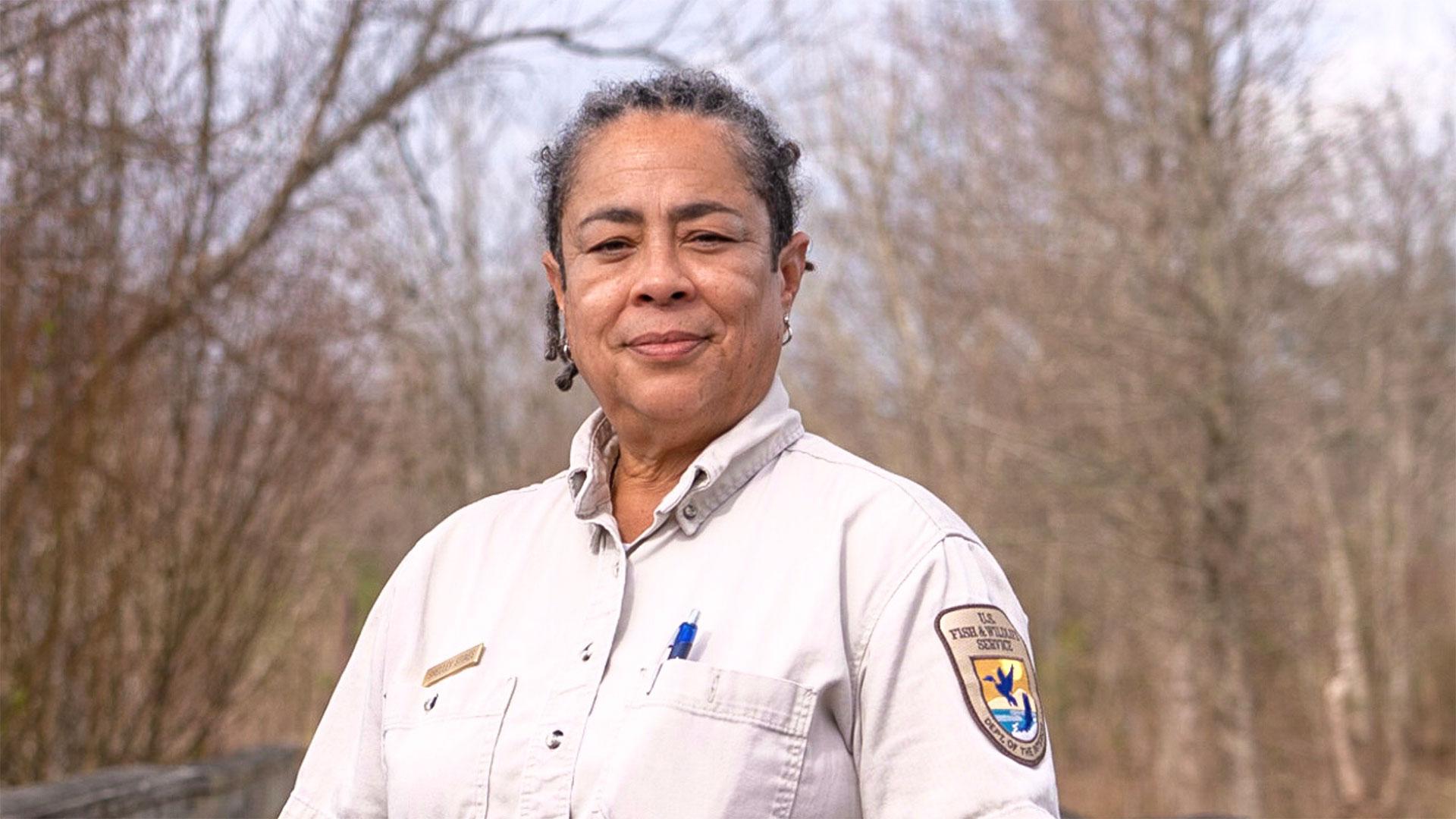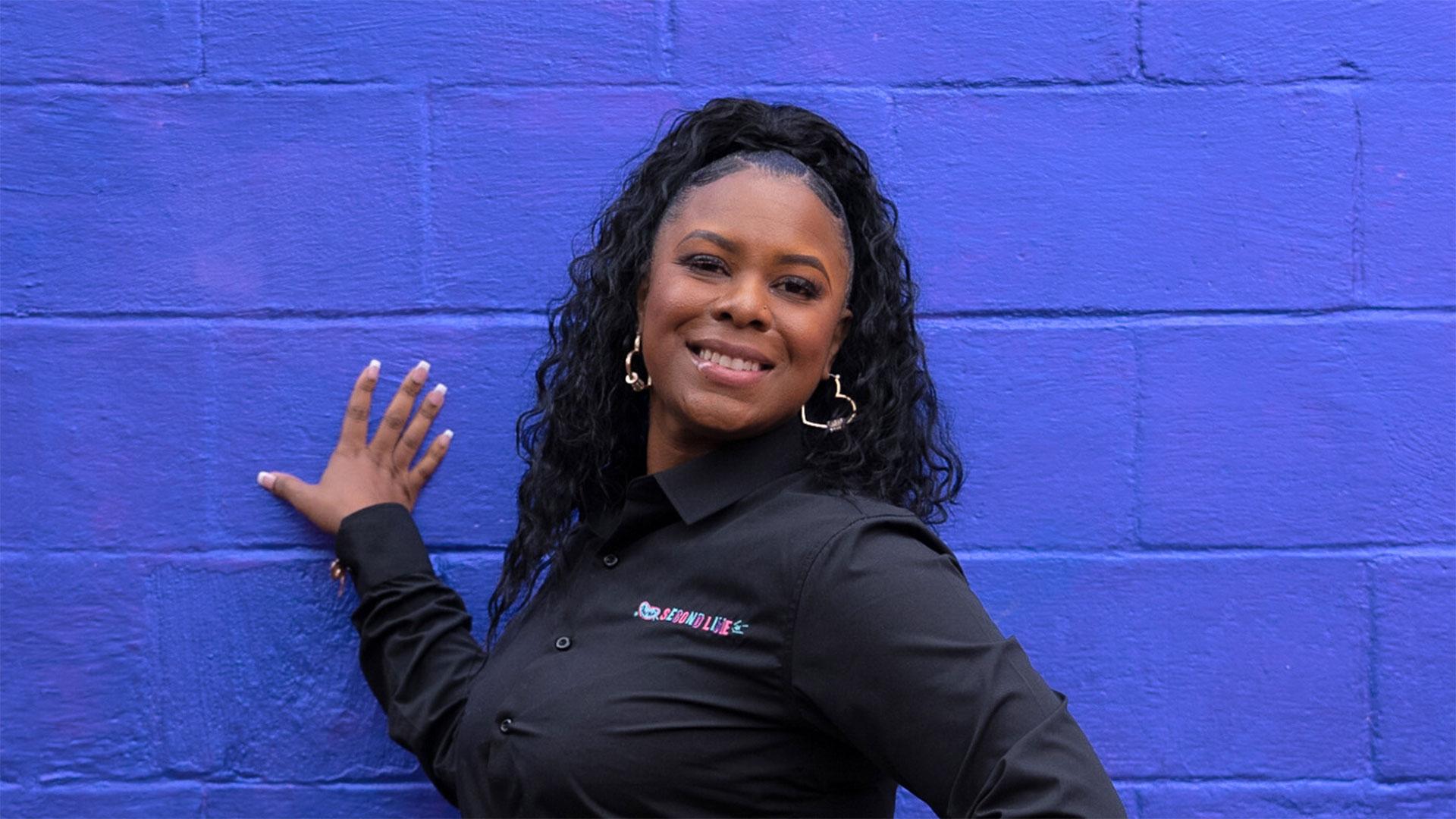Jonshell Johnson: Healing Through Culturally Relevant Farming
In this Episode
Jonshell Johnson’s Story
New Orleans is known for its cuisine and unforgettable regional flavors—cultural food traditions worth preserving. Grow Dat Youth Farm provides opportunities for city kids to connect to the land, spend time outdoors, and learn self-sufficiency skills of growing and cooking fresh foods; they can take lessons and seeds home to cultivate their gardens. Jonshell Johnson is the education coordinator at the farm, located on seven acres in New Orleans City Park. He works with youth leaders to grow healthy and culturally relevant foods and increase access across race, class, and gender while also engaging in agricultural practices that help to reach drawdown. Each year, Grow Dat Youth Farm grows 35,000 pounds of food, 10,500 of which is donated to a local food shelf. Jonshell’s work shows that growing food is good for the environment and for people—a climate solution anyone can try without sacrificing rich cultural identities.
Discussion Questions
One of the most important things you can do regarding climate change is talk about it.
- Jonshell became motivated to grow food as a way to address health issues that people in her family and community face, including high blood pressure and diabetes. She shows others it’s possible to honor culturally important flavors and foods that fit with your family and identity. In her work to grow healthy foods, Jonshell shares that she avoids pushing people toward vegetarian or vegan diets. “Seafood is the softest part of my heart… I never want gumbo to go away, I never want salt to go away, I don’t want sugar to go away. At the same time being able to learn the balance, being able to learn that we share a relationship with plants in that way, which plants need a balance. So when we are in an imbalance, that's when we have things happen to us.” What are foods that are central to your culture? How might we embrace foods that encourage health and wellness for people and the planet while not sacrificing the flavors important to us?
- Jonshell’s earliest memories with plants were through her grandmother, who had an indoor prayer plant that opened in the morning and closed at night. This closing and unfurling sparked a lifelong fascination with the power of plants. “Now I am able to see there is so much more to it; there are seeds, soil, the relationship you have with the land, and the weather, and how all of these things coincide together.” Have you ever planted a seed or grown food? How might this experience change your relationship with the land and the foods you eat?
- Growing and sharing food can bring people together, especially in finding common ground. “It means a lot to me, especially in our political climate, being in the U.S. Being able to be a Black woman, with Black children and to be able to make meaningful relationships along the way has been the biggest and best skill that I could take on.” As that of a Black woman, Jonshell’s work at Grow Dat Youth Farm is personally significant, acknowledging the role that slavery has had “not being able to track my ancestors, hurts a lot…This is a way for me to have a better relationship with food…. As a Black woman, it can constantly be healing within myself about the past… I think about how I am able to do this in a way that is a lot more comfortable than what my ancestors were afforded.” What aspects of your identity do you wish others who are different from you could understand? How might growing or sharing food bring people together to listen, engage in respectful conversation, and build trust to open up about important lived experiences?
- Jonshell held jobs in retail and fast food before her work at Grow Dat Youth Farm. She says her career journey showed her that these “jobs that demanded so much out of me and really didn’t put anything into me.” When talking with youth about their futures, she says we must understand what is sustainable and define what fulfilling work looks like for each of us. Grow Dat Youth Farm provides paid employment for youth leaders to learn skills that increase access to healthy foods while facilitating climate solutions. What are examples of careers in your community that you perceive as doing a good job creating a positive impact while investing in their employees’ health, wellness, and prosperity?
Learn More
Learn about the solutions in this story.
- Solution Sectors: Land Sinks, Food, Agriculture, and Land Use
- Solutions: Reduced Food Waste, Plant-Rich Diets
- For more on all of ProjectDrawdown’s climate solutions, visit drawdown.org/solutions
- Learn more about Jonshell’s work at Grow Dat Youth Farm
Explore Climate Solutions 101, the world's first major educational effort focused solely on climate solutions. This video series combines Project Drawdown’s trusted resources with the expertise of inspiring, scientifically knowledgeable voices from around the world: drawdown.org/climate-solutions-101.
Visit the Yale Program on Climate Change Communication, a resource that shares research, communications strategy and opinion polling on climate communications.
Take Action
- Drawdown Ecochallenge, presented by Ecochallenge.org, is a fun and social way to take measurable action on the top climate solutions. Take the challenge, and see how a few weeks of action add up to a lifetime of change for you and the planet. If you want to take action on climate solutions like Tinice, start a challenge today.
- The Drawdown Labs Job Function Action Guides are practical resources that highlight specific, high-impact climate actions employees in common corporate professions can take at work.
- ChangeX connects people with proven ideas for strengthening communities with the resources needed to implement those changes. Explore countless ways to improve your community and help the world reach drawdown.
- Climate Generation's Green Careers for a Changing Climate Instructional Supplement (for Grades 6-8) contains resources to help young people learn about Green STEM Careers—paths that use STEM skills to help reduce the impacts of climate change. Throughout this instructional supplement, students use Project Drawdown resources to make important connections between climate solutions and different careers.
- Solutions Journalism Network highlights the importance of reporting stories of climate solutions in the media to create a more equitable and sustainable world. Visit their Teaching Climate Solutions resource to find curated collections and the latest examples of climate solutions journalism.
- SubjectToClimate (StC) is a nonprofit online connector for K-12 leaders of all subjects to find materials on climate change at no cost. Explore StC’s educator-generated database to connect to Project Drawdown-based climate education resources.
Sign up to receive updates, provide ideas, and tell us how you might share Drawdown’s Neighborhood in your community.
